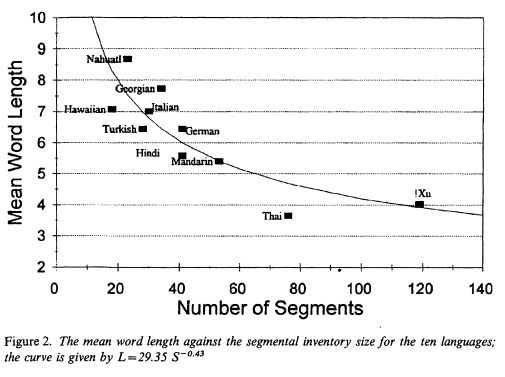I've recently stumbled on this site dedicated to teaching English as a second language to Portuguese speakers. Right at the beginning, while making a comparison among English and Portuguese phonologies, the author states the following:
In less compact languages, with a small number of 1-syllable words and a higher average of syllables per word, the number of phonemes does not need to be large and the difference between each vowel can be bigger. This is the case of Spanish (5 vowel phonemes) and Portuguese (7 vowel phonemes). English, however, is a language extremely economic in the use of syllables, very compact, with a large number of 1-syllable words. Naturally, this requires a larger number of vowel phonemes to supply the bigger "demand" of a system with a reduced number of possible combinations.
I confess I had never thought about that possible causal relation. In retrospect, though, it seems quite a reasonable (and almost self-evident) hypothesis. But, of course, it ultimately has to be validated by hard data. So, my question is: has that claim been confirmed? Namely, that "more compact languages" have more vowel phonemes than less compact ones?
